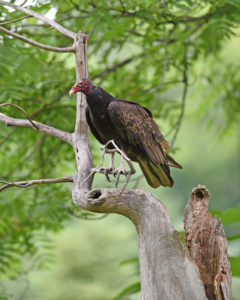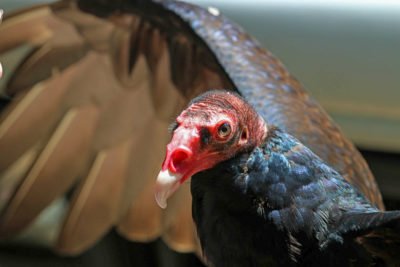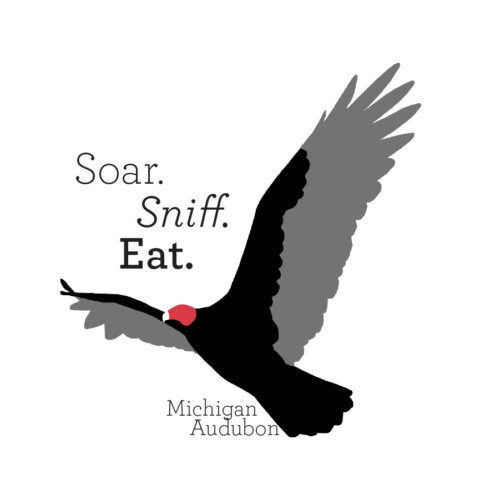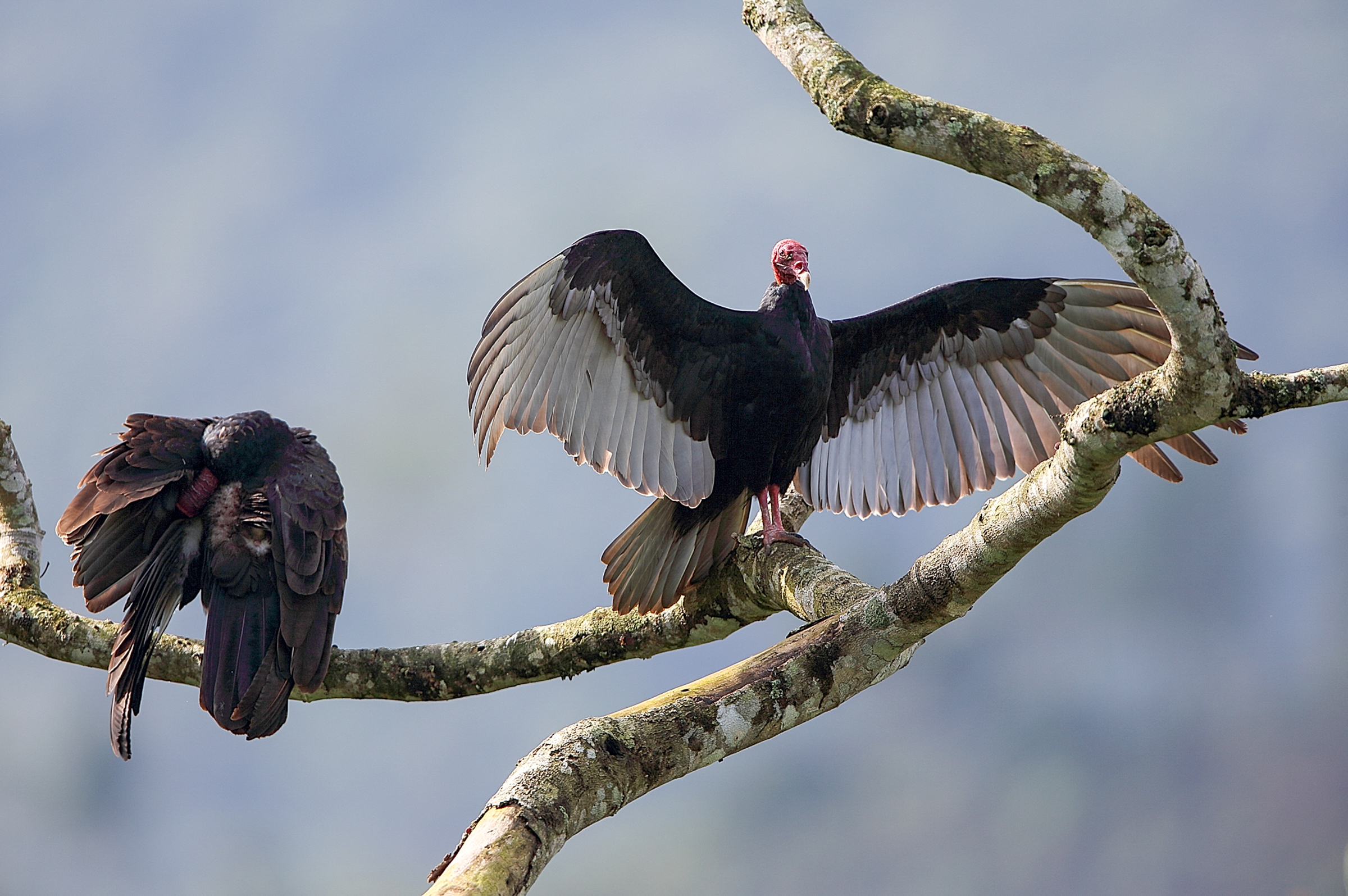
Turkey Vulture © Alexander Ghanayem
It’s time to get out there and celebrate some of nature’s coolest birds on Saturday, Sept. 7, for International Vulture Awareness Day!
Vultures don’t always get the best rap. They aren’t exactly cuddly-looking and the first thing that comes to mind for many people when they see one is death. But these birds are ecologically vital and help make the world a more enjoyable and safe place to live by feeding on carrion — dead animals. While other animals also eat carrion, vultures have a unique digestive system that contains acids capable of dissolving anthrax, cholera bacteria, botulism, salmonella, and more, a feat that most other animals can’t tackle. By eating carrion contaminated with these things, vultures are essentially helping to combat disease spreading to other animals and humans.
Of the 23 species of vultures throughout the world, Turkey Vulture is the one you will see in Michigan. These eagle-sized birds have a wingspan nearing six feet, are mostly dark brown except for the underside of their flight feathers which are silver-gray, and have a red featherless head. In flight, they can be recognized by their v-shaped wings, which they rarely flap, and the resulting characteristic wobble as they soar through the sky.

Turkey Vulture © Michelle Maani
Michigan Audubon staff love Turkey Vulture, and we won’t lie — it’s mostly because they exhibit a lot of gross (but fascinating) behavior:
- Like other birds, Turkey Vulture have no sweat glands. On a hot day, they will urinate down their legs and, as it evaporates, it cools them off much like sweat for a human.
- And why stop at urination? Turkey Vulture also poop on their feet to kill the bacteria that may linger after they feast on carrion.
- Don’t get too close to a Turkey Vulture or you may get puked on! These birds practice defensive vomiting to deter predators or other threats from coming near them. Turkey Vulture can project their vomit up to 10 feet, and the contents are not the most delicate smelling — recall that they eat carrion, and you can imagine how unpleasant the experience would be.
- And speaking of smells, Turkey Vulture have highly adept olfactory glands. They can smell animals that have been dead less than 12 hours and up to one mile away.
So the next time you see a Turkey Vulture pecking away at some roadkill or soaring above, remember what a valuable service they are doing for us and share some random bird facts with your companions.


